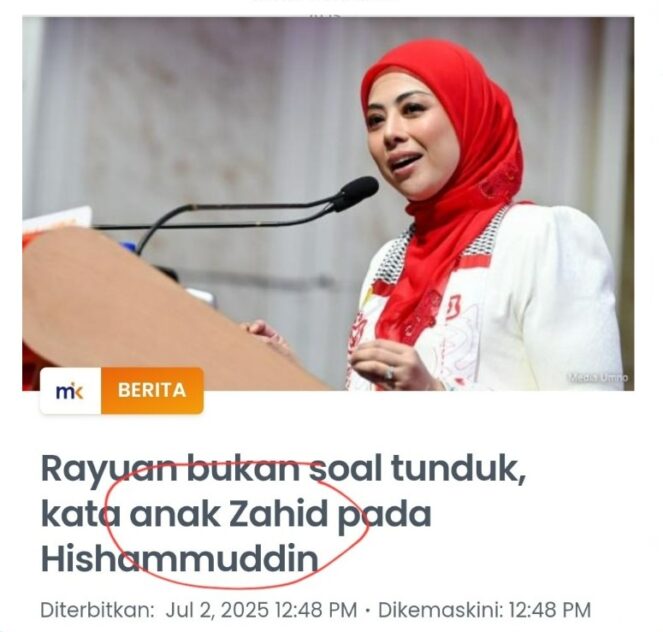By Jamari Mohtar
THE late Tun Salleh Abas is indeed the greatest and most courageous son of Malaysia the country has ever had for his steadfast belief in and his struggle for the independence of the judiciary.
In honour of him, we must unfailingly uphold this doctrine of the independence of the judiciary against any compromise to it.
Four years after being the Lord President (now the office is known as Chief Justice), he was unceremoniously removed from the lofty position in 1988 for the most trivial of reasons – that he purportedly wrote to the then Yang di-Pertuan Agong, the Sultan of Johor complaining to His Majesty of the noises due to the renovation works carried out at the Istana, in addition to complaining on the then Prime Minister Mahathir Mohamed’s incessant attack on the judiciary.
On this basis, the Agong had requested for Tun Salleh to be removed, according to Mahathir, thereby creating the most convenient and flimsy argument that it was not him who wanted to remove Tun Salleh but the Agong.
It does not take a modicum of intelligence to conclude that even if what Mahathir said was true, it should not be the basis for the costly and wasteful act of convening a tribunal to remove him, as the complaints against him did not relate at all to any judicial wrongdoings.
However, the facts of the case then were:
- Tun Salleh was suspended as the Lord President on May 26 1988, three days after he had given instruction that the appeal case on the deregistration of Umno be heard by the full quorum of the Supreme Court;
- His instruction above was rescinded by the government on the same day he was suspended; and
- Mahathir told him in a face-to-face meeting on May 27 of 1988 that Tun Salleh was bias in the appeal case above.
All these proved beyond any doubt the interference of the executive in the affairs of the judiciary, thus compromising its independence.
Aliran, a non-governmental organisation, has immortalised the face-to-face meeting on May 27 by publishing an article based on the account of Tun Salleh of the meeting which was republished again on Jan 16.
After reading the article, I have no doubt that Tun Salleh is the embodiment of a hadith in which the Prophet said the best jihad is to speak the truth in front of an oppressive ruler.
In this regard, it is indeed laudable that in advising the Agong to declare an Emergency, Prime Minister Tan Sri Muhyiddin Yassin has insisted the judiciary be left alone in its independence, but not so the legislative comprising the politicians who are the cause of the political instability at a time when the country is amid a high number of COVID-19 daily infections and the economy is still on a recovery trajectory.
Just look at what they did during the first few days of Emergency. Instead of coming up with a solid plan to help the Government in its fight against the virus and for the recovery of the economy, the leader of the opposition is busy with ‘instigating’ all MPs to write a letter to the Agong to appeal against the Emergency.
While his youth chief is questioning the expenditure on the three stadiums to be built that was approved by the PM, it was not so much because there is a procedural irregularity, but rather because he questioned the priority of spending that much money during the pandemic.
He should have the confidence in PM’s wisdom that even during the pandemic and the current movement control order (MCO), construction activities which are under essential sector have the multiplier potential of creating more jobs, thereby assisting in the recovery of the economy.
The PM has to take the calculated risk of balancing lives and livelihoods.
There is an eerie déjà vu here involving the politicking of the politicians. In February last year, this politicking which resulted in a political crisis was precipitated by the Sheraton Move, which in turn had its genesis in the power struggle between Mahathir and Anwar over whether the former should hand over the leadership baton to the latter by May last year.
Some 32 years ago, the sacking of Tun Salleh was also the culmination of the politicking of the politicians when Tengku Razaleigh Hamzah narrowly lost to Mahathir in the 1987 Umno election which split Umno into Team A and Team B, which then resulted in the deregistration of Umno and culminated in the persecution of an innocent man, who until he went to his grave failed to get a tribunal to clear his name.
Jamari Mohtar is Director of Media & Communications at EMIR Research, an independent think-tank focused on strategic policy recommendations based upon rigorous research.
The views expressed are solely of the author and do not necessarily reflect those of Focus Malaysia.









